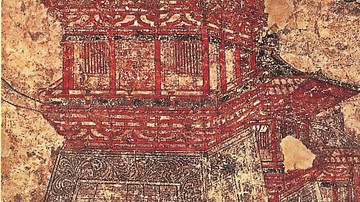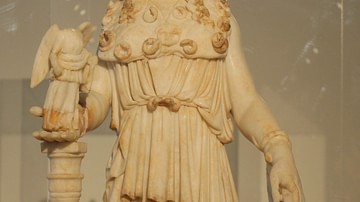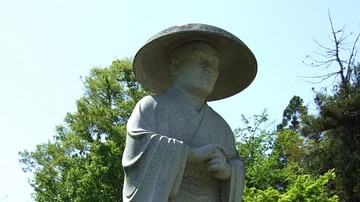Search Definitions
Browse Content (p. 187)

Definition
Warring States Period
The Warring States period (481/403 BCE - 221 BCE) describes the three centuries when various rival Chinese states battled viciously for territorial advantage and dominance. Ultimately the Qin state was victorious and established the first...

Definition
Chang'an
Chang'an, located near modern Xian in Shaanxi Province, was the capital of several dynasties of ancient China from the Zhou to the Tang and eventually became one of the world's great metropolises. With regular tree-lined avenues, high walls...

Definition
Deir el-Medina
Deir el-Medina is the modern Arabic name for the worker's village (now an archaeological site) which was home to the artisans and craftsmen of Thebes who built and decorated the royal tombs in the nearby Valley of the Kings and Valley of...

Definition
Venus Figurine
The term Venus figurine is used to describe the more than 200 small statuettes of voluptuous female figures that have been found at Upper Paleolithic sites across Europe and some parts of Asia. “When paleoanthropologists refer to figurines...

Definition
Phidias
Phidias (also Pheidias) was, according to his contemporaries, the most renowned of all Greek sculptors. His greatest masterpieces were completed between c. 465 and 425 BCE. Unfortunately, except through copies, no example of his work has...

Definition
Ryujin
Ryujin (aka Ryu-o) is the dragon king, sea god, and master of serpents in Japanese mythology. With his magic jewels he is responsible for the tides, and he represents both the perils and bounty of the sea and so was especially relevant to...

Definition
Kagutsuchi
Kagutsuchi (aka Hi-no-Kagutsuchi) is the Shinto god or kami of fire and is also known as Homusubi. The son of Izanami and Izanagi, the fire god is the father of eight warrior gods and eight mountain gods, amongst others. Such a destructive...

Definition
Long Barrow
A long barrow is a class of Middle Neolithic (approximately 3500-2700 BCE) burial monument which is found extensively throughout the British Isles and is related to other forms of contemporary tomb-building traditions of north-western Europe...

Definition
Ennin
Ennin (c. 793-864 CE, posthumous title: Jikaku Daishi) was a Japanese Buddhist monk of the Tendai sect who studied Buddhism at length in China and brought back knowledge of esoteric rituals, sutras, and relics. On his return, he published...

Definition
Kofukuji
Kofukuji is a Buddhist temple which was founded in 669 CE and relocated to its present location in Nara, Japan in 710 CE. It was the main Buddhist temple of the influential Fujiwara clan during the Heian Period (794-1185 CE). The temple's...